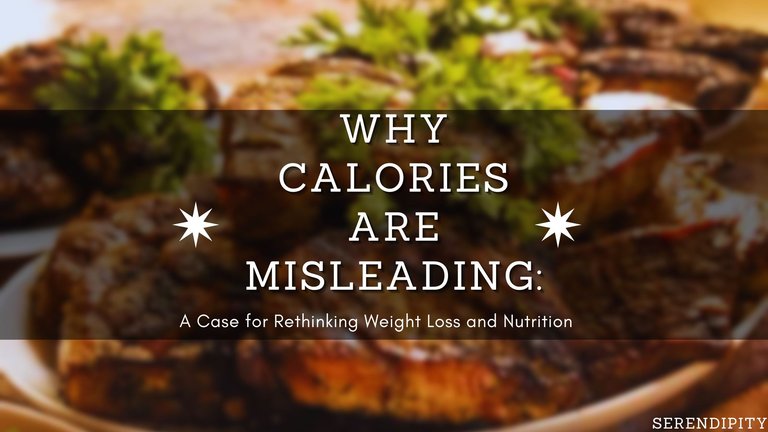Why Calories Are Misleading: A Case for Rethinking Weight Loss and Nutrition
Let’s get straight to the point: exercise is not a calorie-burning tool. Sure, it might burn a few calories here and there, but its role in weight loss is grossly overestimated. In fact, exercise is nearly useless for shedding pounds. Before you come for me, let me explain. Exercise is a gift to your body—but for reasons that have nothing to do with calories.
It strengthens your mental health, builds muscle, boosts metabolism, and keeps your bones steady among other things. These benefits far outweigh the oversimplified notion of burning off that donut from breakfast.
But here’s the kicker: the way we think about calories in general might be the real problem.
Calories: A Flawed Measure in Nutrition
A calorie is a scientific unit of energy—specifically, it’s the energy required to raise the temperature of one millilitre of water by one degree Celsius.
It is equivalent to approximately 4.184 joules (J) of energy. That’s it. It’s a tool invented for physics, not nutrition. Yet somehow, it became the golden rule for diet culture. Why? Because it’s simple. Calories in, calories out. Eat less, burn more. Sounds easy, right?
Except it’s not. This outdated framework oversimplifies one of the most complex systems in the human body: digestion.
Digestion Is A Symphony, Not a Calculator

When you eat food, your body doesn’t just "burn" it like coal in a furnace. Food goes through a complex process involving mechanical breakdown, chemical digestion, hormonal regulation, and nutrient absorption. Here’s the bombshell: your body doesn’t treat all calories equally.
Take protein, for example. Eating protein triggers something called the thermic effect of food—your body generates heat as it breaks protein down, which means you burn more energy in the process. Compare this to fat or carbs, which require less effort to digest. So, while the food label might say 200 calories, your body might "net" fewer calories after digesting it.
Still with me? Good, because it gets even messier.
Not All Calories Inspire Movement

Here’s a thought experiment: imagine drinking 1,000 calories worth of alcohol. What happens? You probably sit down (or pass out) and feel terrible the next day. Now imagine eating 1,000 calories of sugar. You might feel a short burst of energy (hello, carb high!) before crashing into a lethargic heap. Compare this to a high-protein or balanced-fat meal. Not only do you stay fuller for longer, but you’re also more likely to move spontaneously—whether that’s fidgeting, walking, or just feeling more alive.
Calories aren’t just about energy; they’re about behaviour.
The Problem With Calorie Labels
Let’s say you’re trying to be "good" and eat 2,000 calories a day. That’s what the Reference Daily Intake (RDI) tells you to aim for. But here’s the dirty little secret: calorie counts on food labels can be off by as much as 20%. That means your 2,000 calories might actually be 1,600—or 2,400. Over time, this discrepancy can add up to pounds gained or lost, and you’re left scratching your head, wondering what went wrong.
And don’t even get me started on the absurdity of comparing steak calories to, say, coal or uranium. A small amount of uranium could release billions of calories, but you’re not putting that on your plate.
Beyond Calories: A Holistic View of Nutrition

The calorie model also fails to consider individual factors like metabolic state, hormonal fluctuations, and nutrient absorption. Two people could eat the exact same meal and absorb vastly different amounts of energy based on their unique physiology.
This is why focusing solely on calorie counting is not just unhelpful—it’s harmful. It ignores the richness and complexity of the human body. Instead, we should shift the conversation to:
- The quality of the food we eat (nutrient density, satiety, and balance).
- How food makes us feel (energy levels, mental clarity, and mood).
- The long-term impact on our health (bone strength, muscle maintenance, and metabolic health).
A New Perspective on Weight Loss
So, if calories aren’t the answer, what is? The truth is, weight loss isn’t just about math—it’s about biology, behaviour, and sustainability. Exercise matters, but not as a punishment for overeating. Food matters, but not just as a number on a label.
Instead of obsessing over calories, focus on what truly nourishes you. Choose foods that make you feel energized and strong. Move your body in ways that bring joy. And most importantly, question the myths that diet culture has sold us for decades.
Calories are just one piece of the puzzle—and a misleading one at that. Let’s stop giving them so much power.
What do you think? Is it time to ditch the calorie obsession for good? Let me know in the comments!

Calories are overrated. The body tells itself what it needs 😉😀😀
💯
Thank you for posting in the Ecency community
Sending you Ecency points ♥️
Use Ecency every day to boost your growth on the platform!